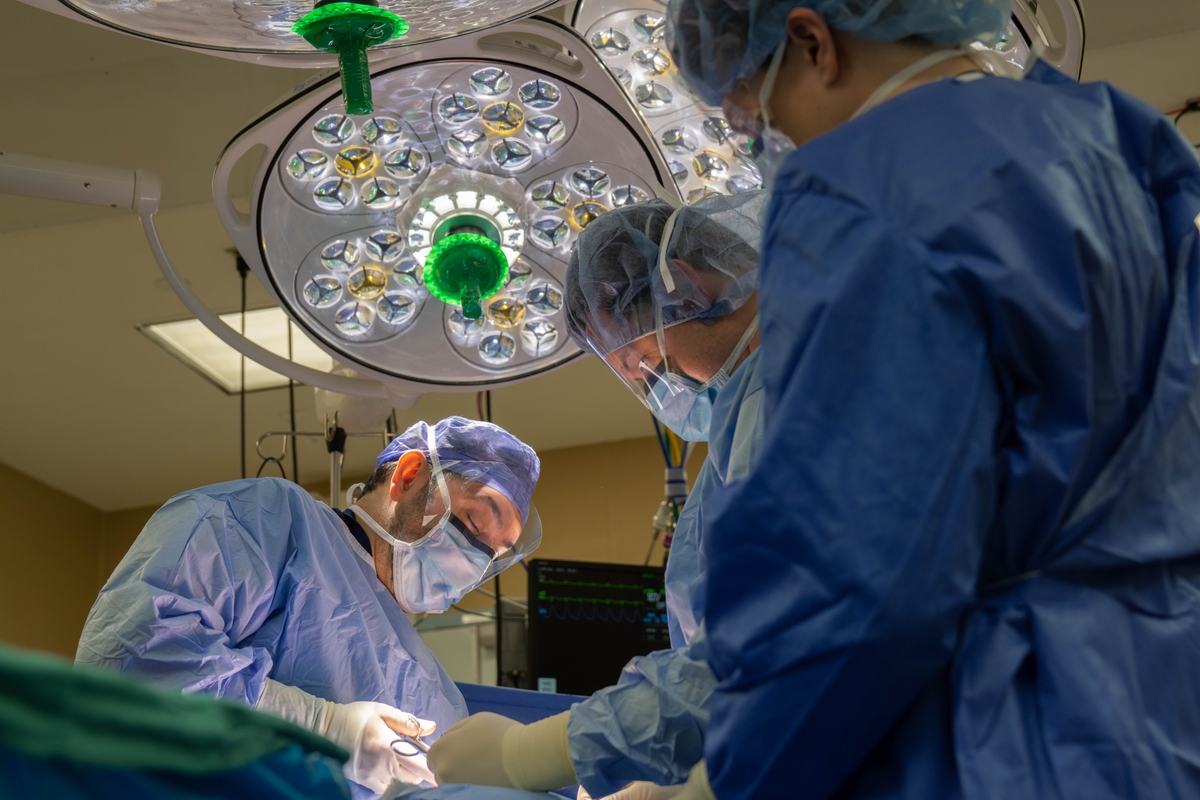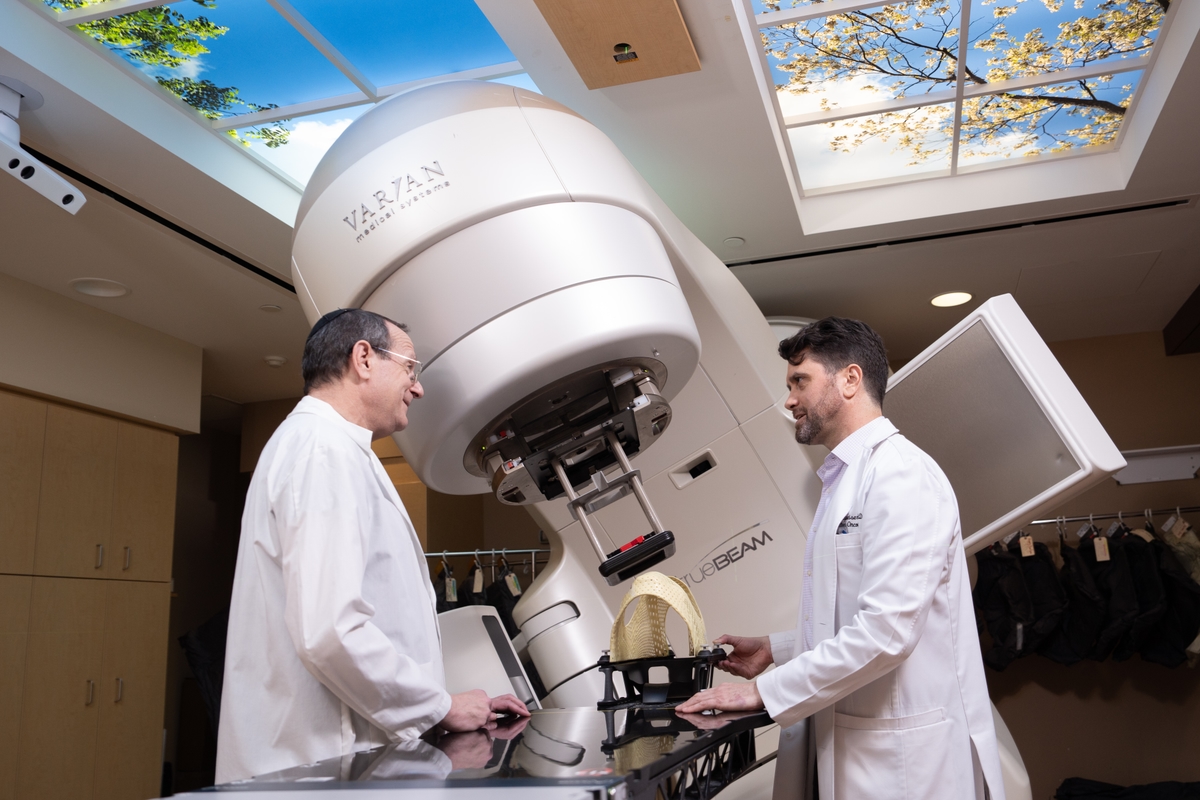The Lefcourt Family Cancer Treatment and Wellness Center takes a team approach. Our disease-specific teams include doctors and other healthcare professionals from a variety of disciplines with experience treating your cancer. Together, these experts create an individualized plan of treatment designed to meet your needs, based on the biology and stage of your cancer. We offer the most sophisticated lung cancer treatments available based on the latest medical research, tailored to the unique characteristics of your cancer.
Surgery for Lung Cancer
For early-stage lung cancers, surgery is often the best treatment option. Our experienced thoracic surgeons often perform minimally invasively video-assisted thoracic surgery (VATS) or robotic lung cancer surgery, operating through smaller incisions. They are skilled in:
- Lobectomy: The main treatment for most stage 1 and 2 lung cancers, with the surgeon removing the lobe of the lung containing the tumor.
- Sub-lobar surgery (segmentectomy or wedge resection): The surgeon removes the tumor without taking out an entire lobe. These approaches are often used for smaller stage 1 cancers or in patients with other health issues.
Radiation Therapy for Lung Cancer
If surgery is not an option for you, radiation therapy may be recommended. Englewood Health offers stereotactic body radiation therapy (SBRT) using the Varian Calypso® Anchored Beacon® lung transponder system. This technology provides real-time feedback on the tumor's position, enabling precise targeting of lung cancer while minimizing damage to nearby healthy tissues.

Medical Treatments for Lung Cancer
Our Infusion Center, located on the Englewood Hospital campus, offers a comfortable and convenient experience for patients returning often for therapy. We also provide medical treatments in our Jersey City and Fair Lawn locations. There are several kinds of medications used to treat lung cancer.
- Targeted therapy: After a molecular analysis of your tumor, your oncologist may prescribe a targeted therapy that blocks the molecules fueling lung cancer growth.
- Chemotherapy: Powerful drugs are used to kill cancer cells or shrink tumors. We may give chemotherapy before surgery to shrink a tumor and make it removable, or after surgery to reduce the chance of the cancer coming back. Chemotherapy may be part of combination treatment that also includes radiation therapy or immunotherapy.
- Immunotherapy: These medications boost the power of your immune system to find and kill cancer cells. A number of immunotherapies have been approved by the FDA to treat lung cancer and have even extended the lives of people living with advanced disease.
- Clinical trials: Our oncologists participate in many clinical trials evaluating promising new treatment options for non-small cell lung cancer and small cell lung cancer. A clinical trial may give you access to a cutting-edge therapy that is not yet available as a standard treatment. Your care team will let you know if you may be eligible for any clinical trials. The decision to participate is entirely yours.
Geriatric Oncology for Lung Cancer
At Englewood Health, we offer specialized care for older adults diagnosed with lung cancer. Our team focuses on the unique needs of elderly patients, tailoring treatment plans to address both the cancer and any age-related health concerns. With a comprehensive approach that balances effective cancer treatment and maintaining quality of life, we provide personalized care that takes into account the patient's overall well-being and treatment tolerability.
Survivorship Services
After completing multidisciplinary therapy, patients are guided through a comprehensive survivorship meeting. This meeting provides an opportunity to review the treatments received and establish a personalized plan for ongoing surveillance and follow-up care. Our team will assess your current health status, discuss strategies for monitoring your recovery, and help ensure you have the necessary support for long-term well-being following lung cancer treatment.
